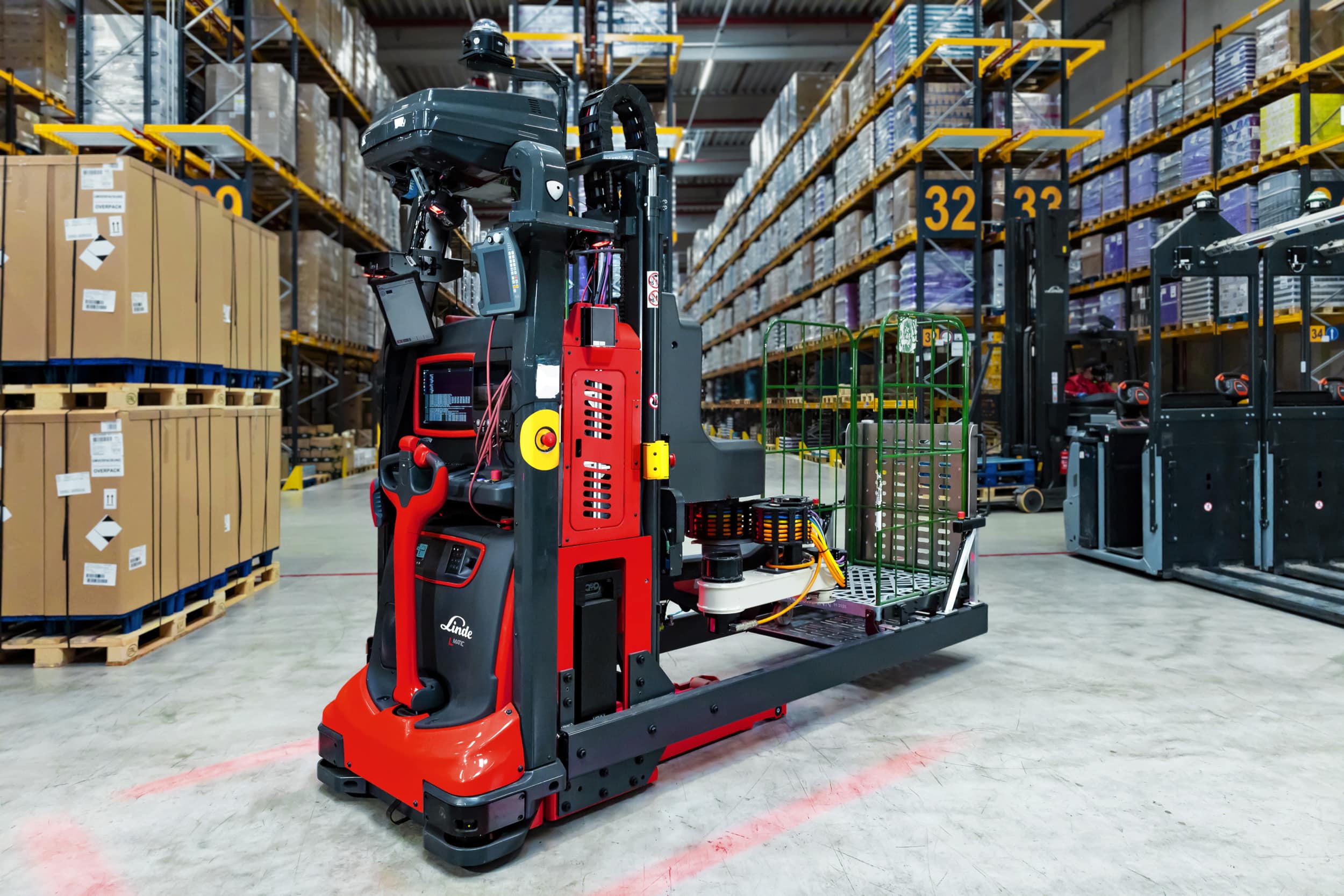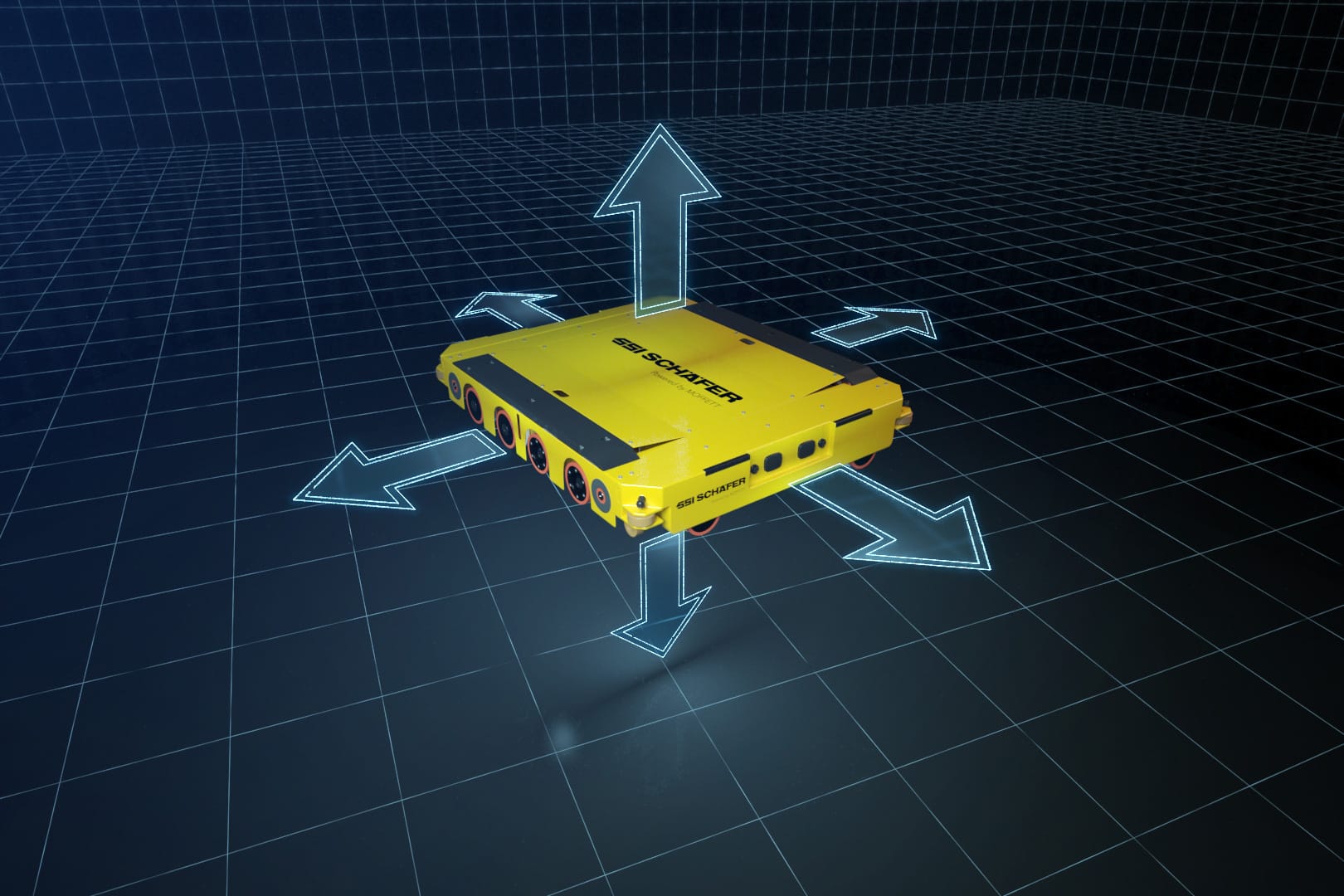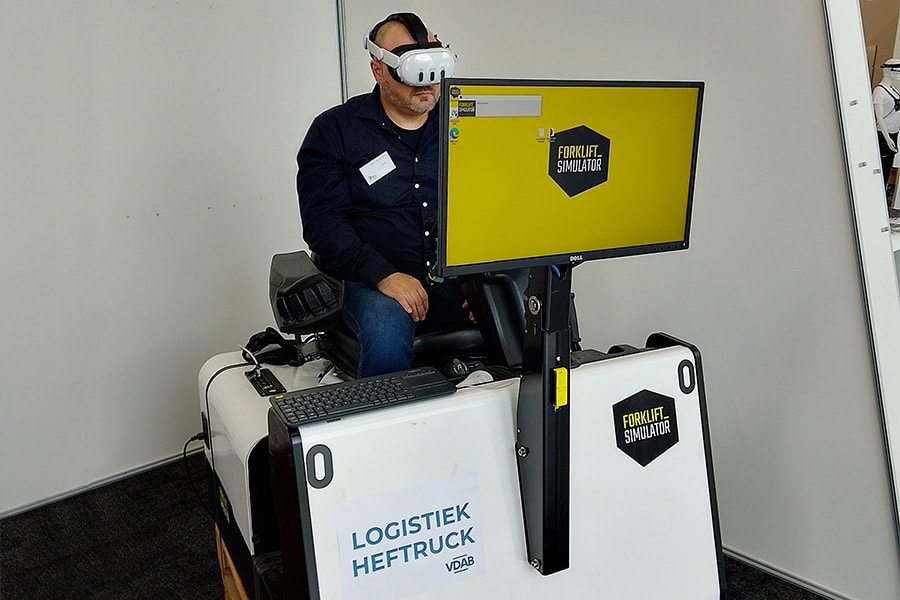
Gamification in logistics: how game elements make a difference in training, motivation and retention
The logistics sector is under pressure: staff shortages, complex onboarding processes and growing diversity on the shop floor are making it increasingly difficult to train employees quickly and effectively. Traditional forms of training often prove inadequate, especially for low-skilled or foreign-language profiles. In collaboration with Supportsquare, VIL organized the "Gamification in Logistics" event on May 21, 2025. Around seventy participants gathered at LogiVille to discover how game elements can make the difference in training, motivation and retention.
Geert Verbelen (VIL project leader) explained the structural bottlenecks in the logistics sector. Despite the large supply of job seekers, vacancies for warehouse workers and forklift drivers remain difficult to fill. The cause is not only shortages of experience or education, but also language barriers and digital illiteracy, among others. This makes onboarding not only more important, but also more complex.
More and more companies are therefore turning to game elements to facilitate knowledge transfer. Simple tools such as card or board games about company culture and safety rules make training more accessible. Not insignificant in a context where 70 percent of the Belgian population regularly plays games, regardless of age or level of education.
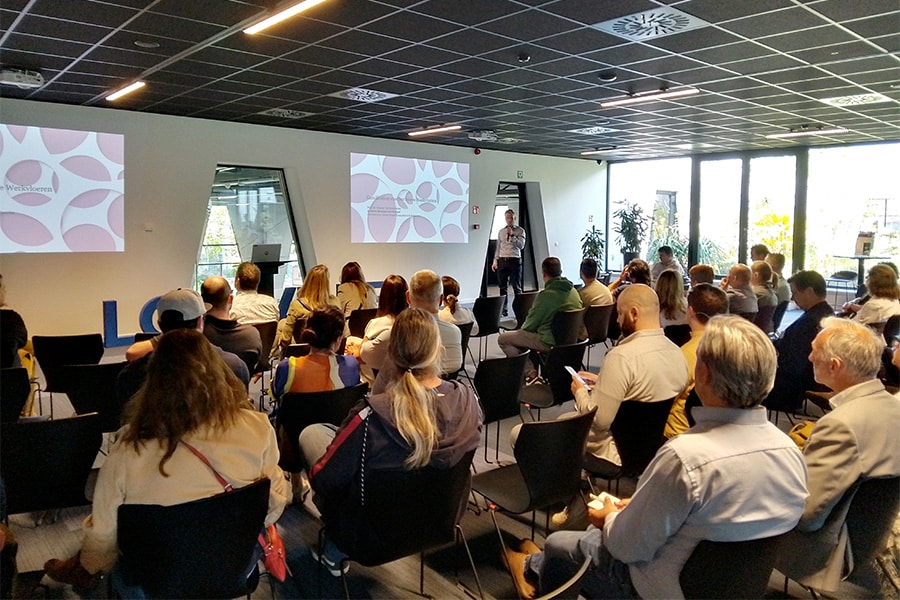
LogiBuild: playing with impact
The project Gamification in Logistics, set up by VIL in collaboration with UCLL and supported by VLAIO, resulted in the development of LogiBuild: a no-code platform that allows companies to build their own 'gamified' learning modules. The platform focuses on visual communication, intuitive interaction and realistic simulations. Everything is aimed at better engaging disadvantaged groups - such as non-native speakers or low-literates - in the learning process.
Two pilot cases showed how effective the tool can be. At DSV Contract Logistics, employees learned to recognize dangerous situations through an interactive game. At Solucious, a game was used to unload trucks correctly and safely. In both cases this led to higher engagement, faster knowledge absorption and more motivation among the participants. The user-friendliness and adaptability of the tool were also well received.
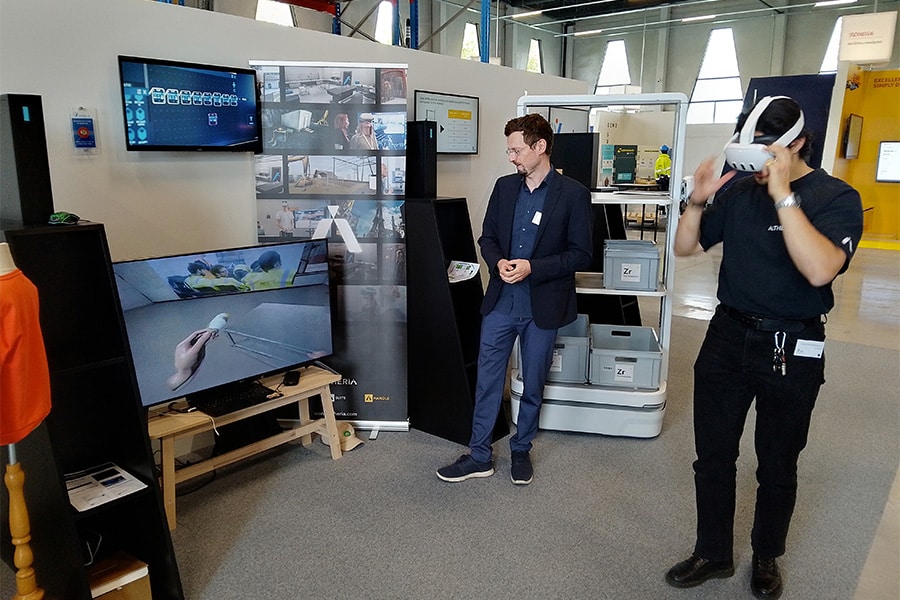
Learning by doing: the power of simulation
During the event, Ken Van Schaeybroeck, subject expert in logistics at VDAB, pointed out the importance of efficient training in a sector where some seven thousand logistics courses are started every year. VDAB is increasingly combining simulation and gamification, as with a mobile forklift simulator or industry simulators for welding and spraying techniques. These tools make it possible to learn complex operations in a safe, cost-effective way, with real-time feedback and game elements such as scores and medals.
Gamification is also used in online courses to embed learning or provide new knowledge. By embedding theory in realistic game scenarios - for example, delivering goods correctly - the threshold for learning is lowered and engagement increased.
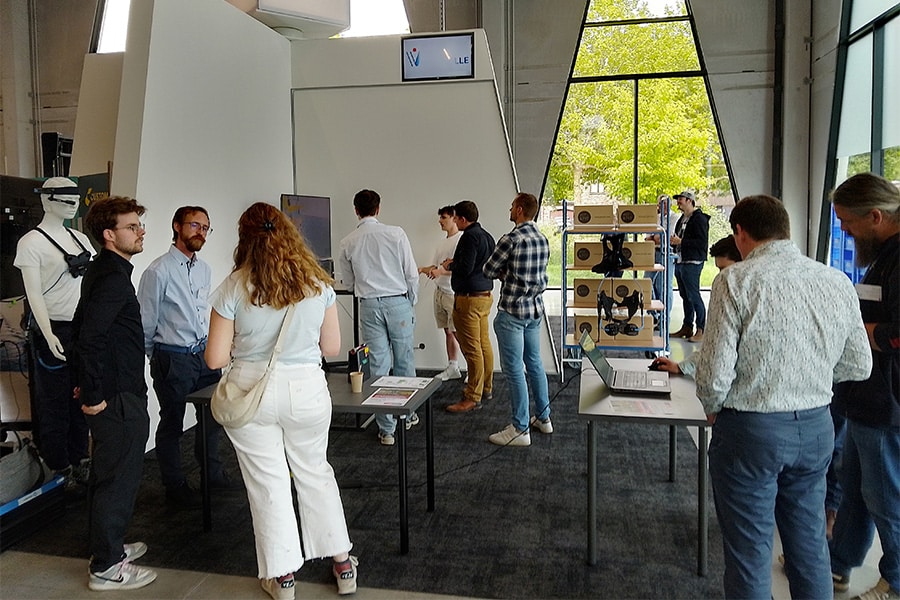
Smart technology with human psychology
David Vandenbroeck, Digital Solutions project manager at UCLL, emphasized that gamification is more than fun visual effects. It is about using gaming principles to fuel intrinsic motivation and improve learning outcomes in a sustainable way. This requires thoughtful choices in software, hardware and didactics. The LogiBuild tool has already been refined in several versions based on user experience, with new features such as GPS navigation, quest logs and 3D visualizations.
Prof. Dr. Wouter Van Bockhaven (Competence Center Lead - Smart Ecosystems & Networks at AMS) in turn made the link between gamification and inclusive workplaces. Gamification, if applied well, can break biases, stimulate cooperation and activate diversity in a positive way. From a psychology perspective, techniques such as nudging, personalization and design thinking are crucial to make a real impact.
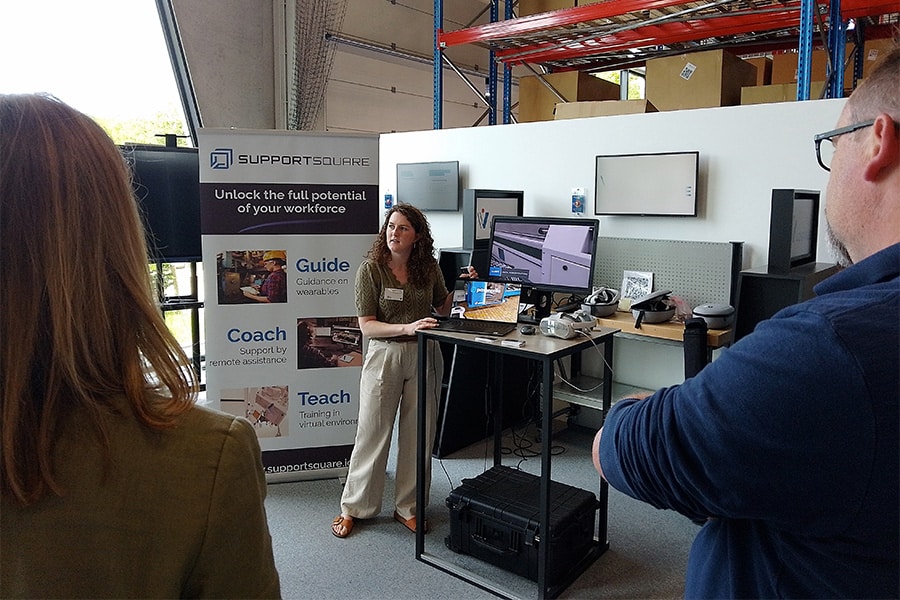
Demos: technology in action
During an interactive demo tour, attendees received live demonstrations of innovative gamification and simulation applications from partners such as SupportSquare, UCLL, VDAB, The Hazard Factory, Altheria and Playsight. For example, SupportSquare and UCLL showed how the LMS platform behind LogiBuild tracks learning performance and enables personalization. VDAB presented its mobile simulators and Playsight demonstrated how motion capture and visual feedback are used to make safety training more realistic. The demos illustrated how mature and young technology companies are applying gamification to concrete logistics challenges.
